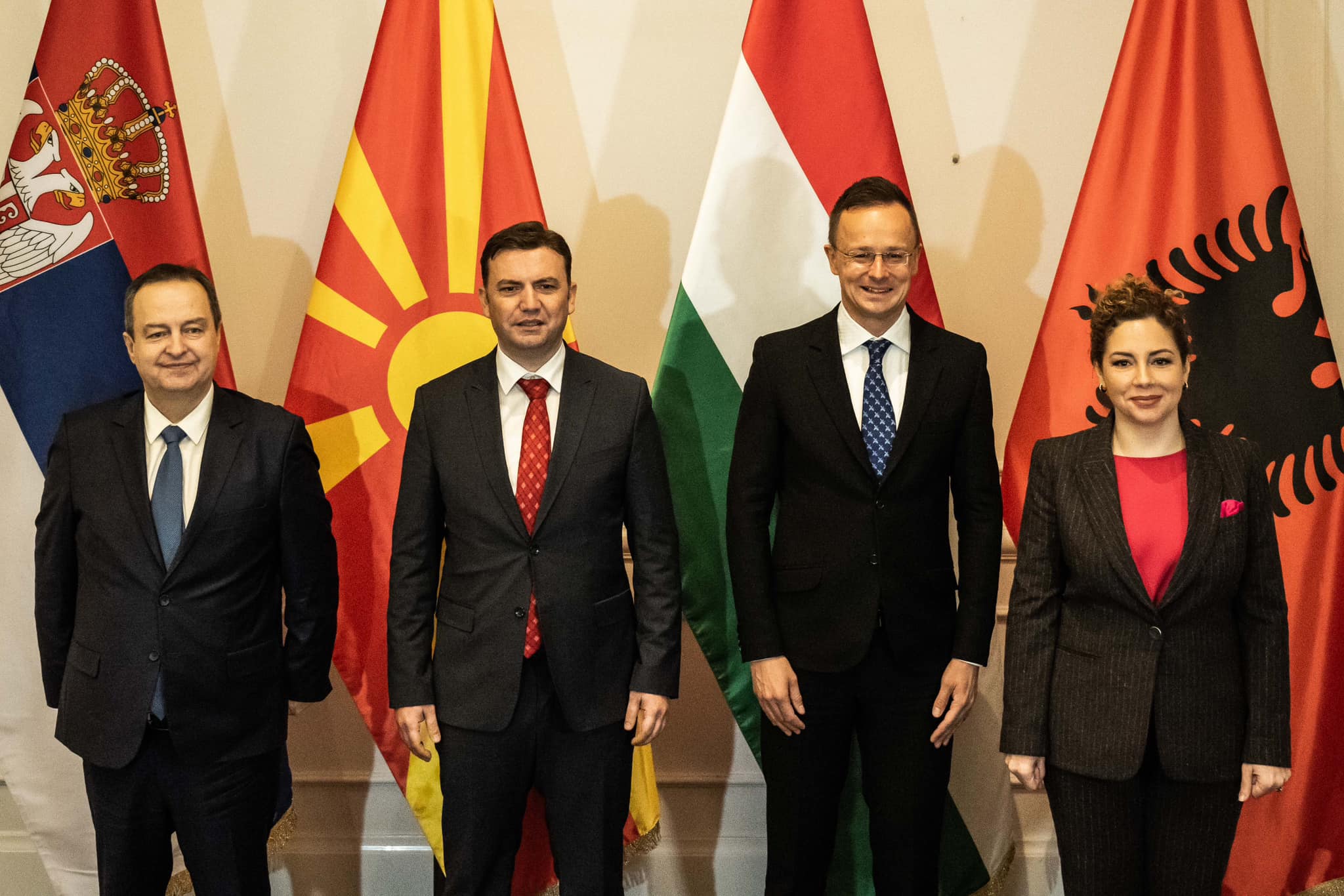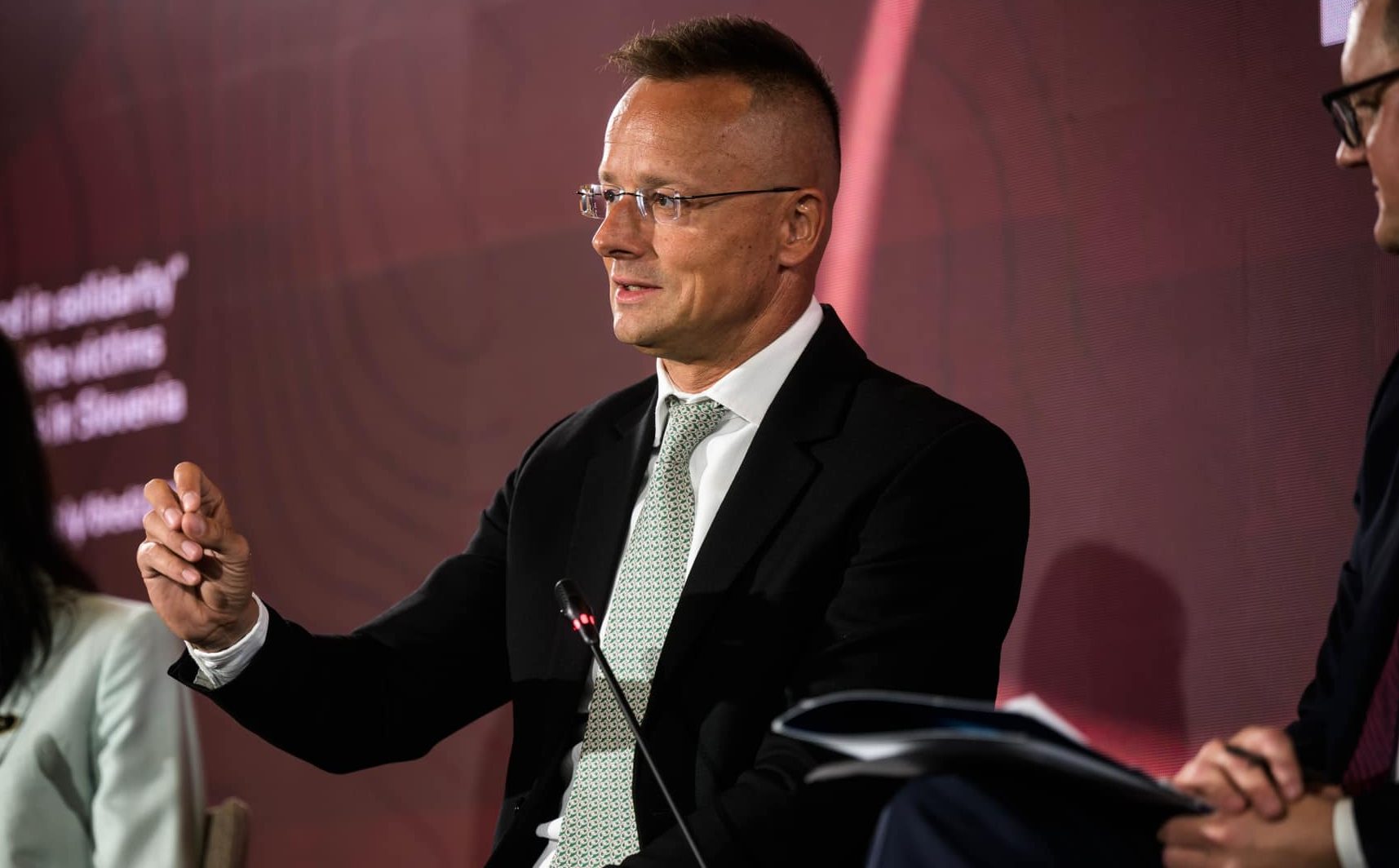
According to Foreign Minister Péter Szijjártó, the European Union is in an increasingly bad shape for a number of reasons, one of which is the failure of the enlargement process.Continue reading

There is a need for sensible reforms in the European Union, enlargement should be treated as a top priority, Foreign Minister Péter Szijjártó emphasized at a panel discussion at the Bled Strategic Forum in Slovenia. According to him, the Western Balkan states should be included in the EU as soon as possible, as this would significantly strengthen the community.
The Minister said that the EU is not in good shape today and has weakened in recent years in the areas of security, economy and energy security. However, this situation had not come out of nowhere, but was the result of various decisions that had either been taken or not taken.
On the issue of security, Péter Szijjártó recalled that the negative consequences of the war in Ukraine were particularly serious, and that Hungarians were also dying in the fighting. He stressed that the EU’s Foreign Affairs Council usually calls for peace talks between the opposing parties in remote armed conflicts, but unfortunately, in this situation, this is not the position of the community.
Anyone who advocates an immediate ceasefire and peace talks is immediately condemned and branded a Russian spy, a Kremlin propagandist, a friend of Putin,”
he pointed out.
Turning to the economic situation, the Foreign Minister stressed that in 2010 the EU’s share of world GDP was 22 percent, while China’s was 9 percent. By now, the situation has reversed and China’s share is 18 percent and the EU’s 17 percent. He called the cutting of economic ties between Europe and China, the so-called “de-risking”, which some people wish to see, a mistake.
The risk is not the cooperation with a rapidly emerging economy, but cutting ourselves off from it,”
he emphasized.
Turning to energy security, the Minister warned that supply should not be seen as a dogmatic, ideological or political issue, but a purely physical one.
In all three respects, he said, it was important to speed up EU enlargement, emphasizing that the European Union would be bigger and stronger with the Western Balkans. “There would be more room for economic cooperation. From the perspective of energy security, the region is the most important transit route today, and enlargement would make it unnecessary to cry about the intentions of other players,” he reminded.
Péter Szijjártó pointed out that
the European Union currently needs the Western Balkans more than vice versa, and that is why progress in the accession process cannot be delayed.
He also criticized and called shameful the fact that Bulgaria and Romania have still not been allowed to join the Schengen area.
In Bled, the Foreign Minister met his Bulgarian counterpart one-on-one as well, with the main topic of discussion being energy. He stressed that the secure supply of natural gas to Hungary would not be possible without the TurkStream gas pipeline through Bulgaria. Moreover, Turkish, Azeri and Qatari gas will be used in the coming years and will all come to our country via Bulgaria, so the transit role of Bulgaria will continue to grow.
The parties confirmed that they will continue to work closely together in the field of nuclear energy, as both countries operate nuclear power plants and both intend to continue to do so. Furthermore, nuclear fuel supplies to Paks are also coming to Hungary via Bulgaria.
Also in Slovenia, Péter Szijjártó held talks with the High Representative for Bosnia and Herzegovina, Christian Schmidt. According to the Foreign Minister, it had been shown in recent years that threats and sanctions do not work, and that the leaders elected by the people of Bosnia and Herzegovina must be respected and spoken to with respect.
“We will continue to provide all support to Bosnia and Herzegovina in its European integration efforts and we will continue our cooperation with the Republika Srpska. In the framework of our responsible neighbourhood policy, we will continue to provide support for the development of infrastructure and agriculture,” the Foreign Minister stressed.
Via MTI, Featured photo via Facebook/Péter Szijjártó